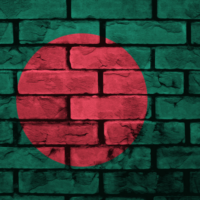For over the next four weeks, 180 Libyan youth will participate in workshops for promoting Positive Peace, started on 19 March 2018 and organised by UNICEF and the Institute of Economics and Peace through funding from the Government of Italy.
Based on the Institute of Economics and Peace’s [IEP] Positive Peace Framework and under the framework of the Nicosia Initiative which is lead by the European Committee of the Regions in support of Libyan municipalities, the series of workshops will encourage Libyan youth to look forward to the future instead of looking back at the differences of the past.
Speaking ahead of the first workshop, one of the participants from Benghazi Warda, Mohammed El Bijou said, “I am looking forward to the workshops, to learning skills that will allow me to translate my thoughts into action; to develop initiatives which will help my community and promote a culture of peace in my country.”
UNICEF Special Representative to Libya, Abdel-Rahman Ghandour said, “This generation of young women and men in Libya stand at the border between political instability and conflict and the future of prosperity, peace and humanity. The launch of these workshops is an important step to support young Libyans by giving them the tools, skills and potentially the funding they need to create change in their communities.”
The Mayor of Zintan who has been one of the main supporters of the workshops in the context of the Nicosia initiative, Mr. Mostafa Al Baroni said, “The participation of young people is crucial for the development and stability of Libya. These workshops will be a strong step in spreading peace and coexistence in Libya through increasing the ability and awareness of youth to address the needs of their communities.”
After attending the workshops, participants will return to their home cities and be encouraged to start campaigning to raise awareness in their communities about positive peace. A joint UNICEF, IEP panel will also select the most innovative projects to be funded and implemented at a local level in Libya.









































